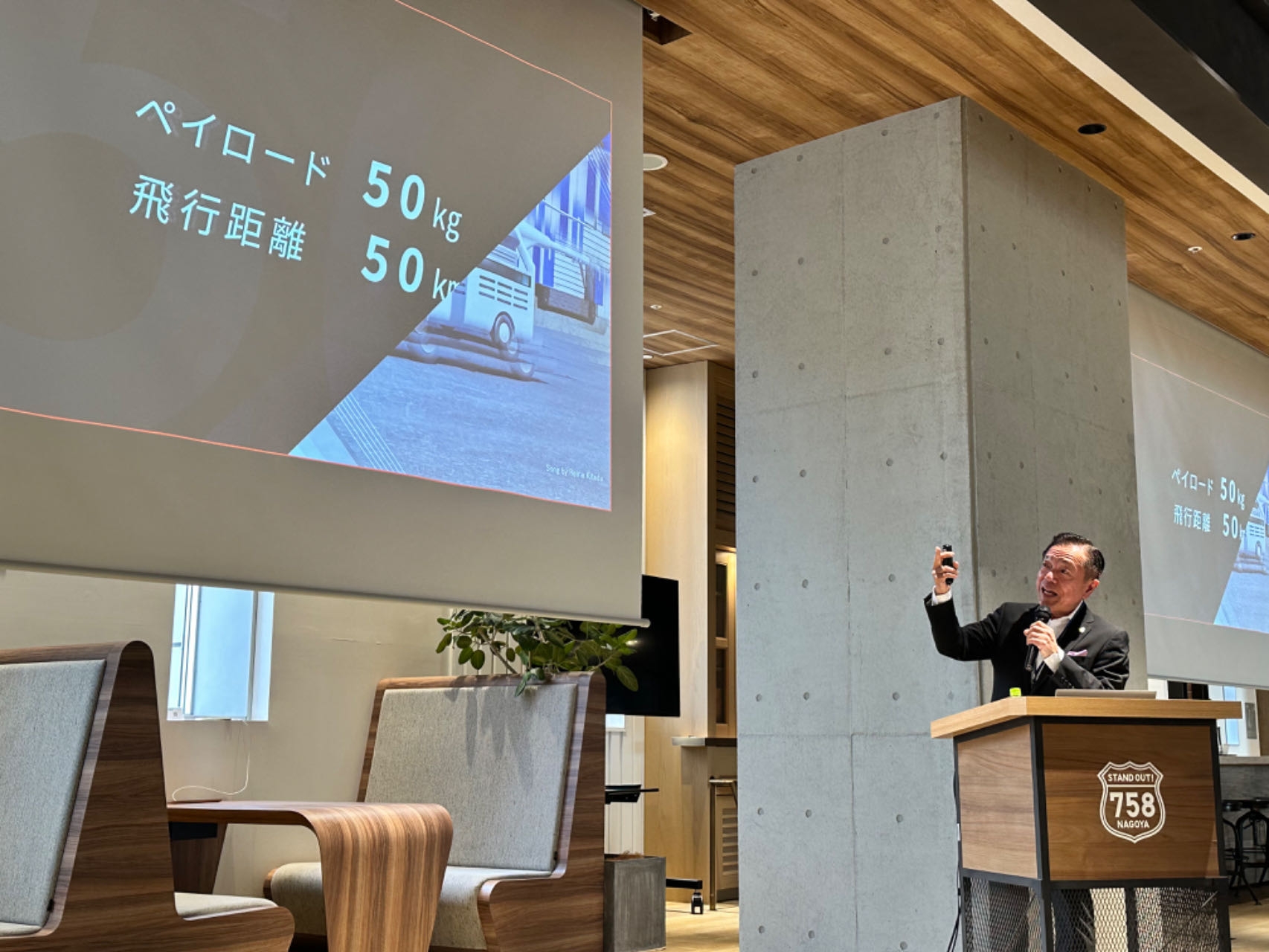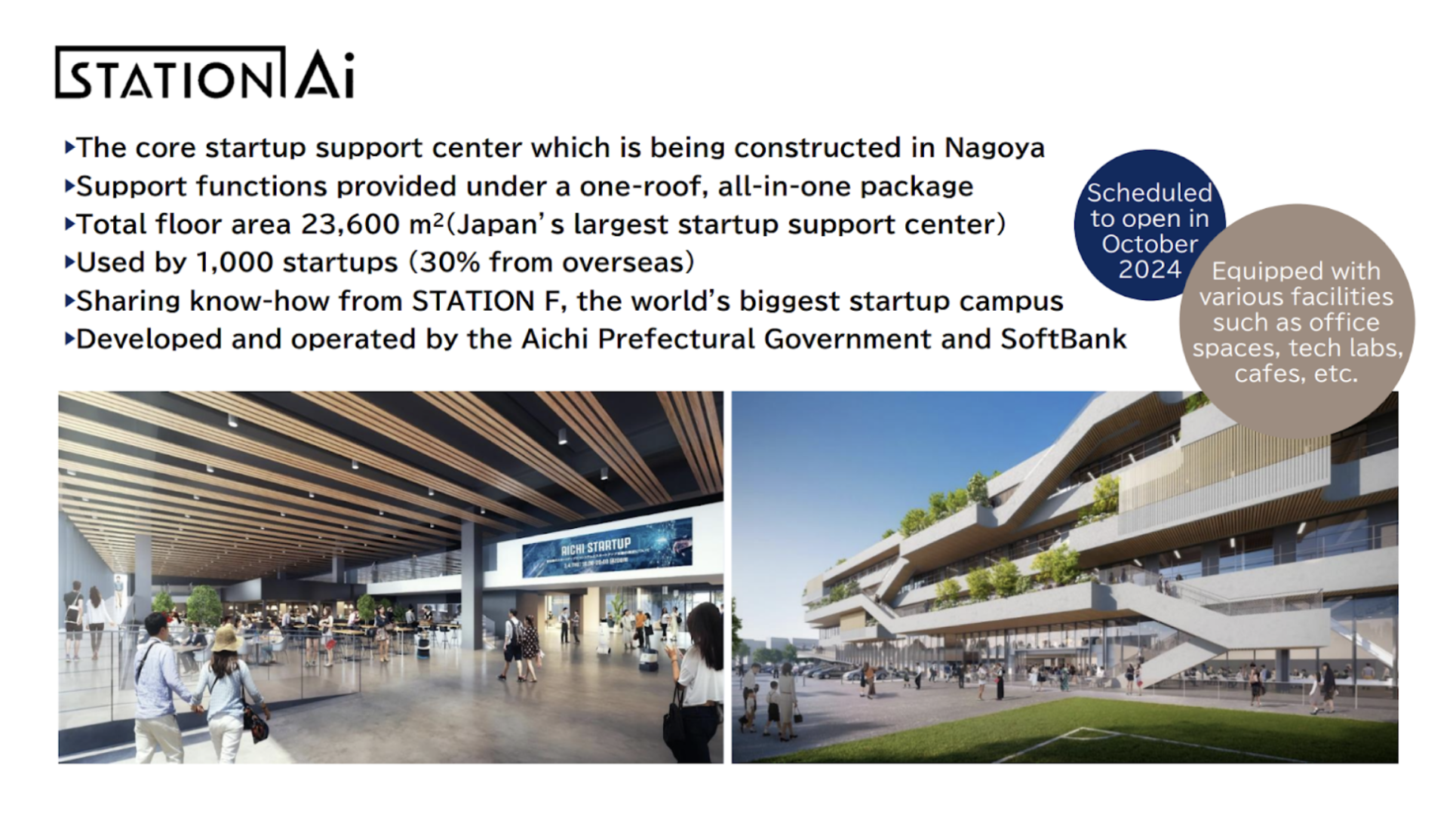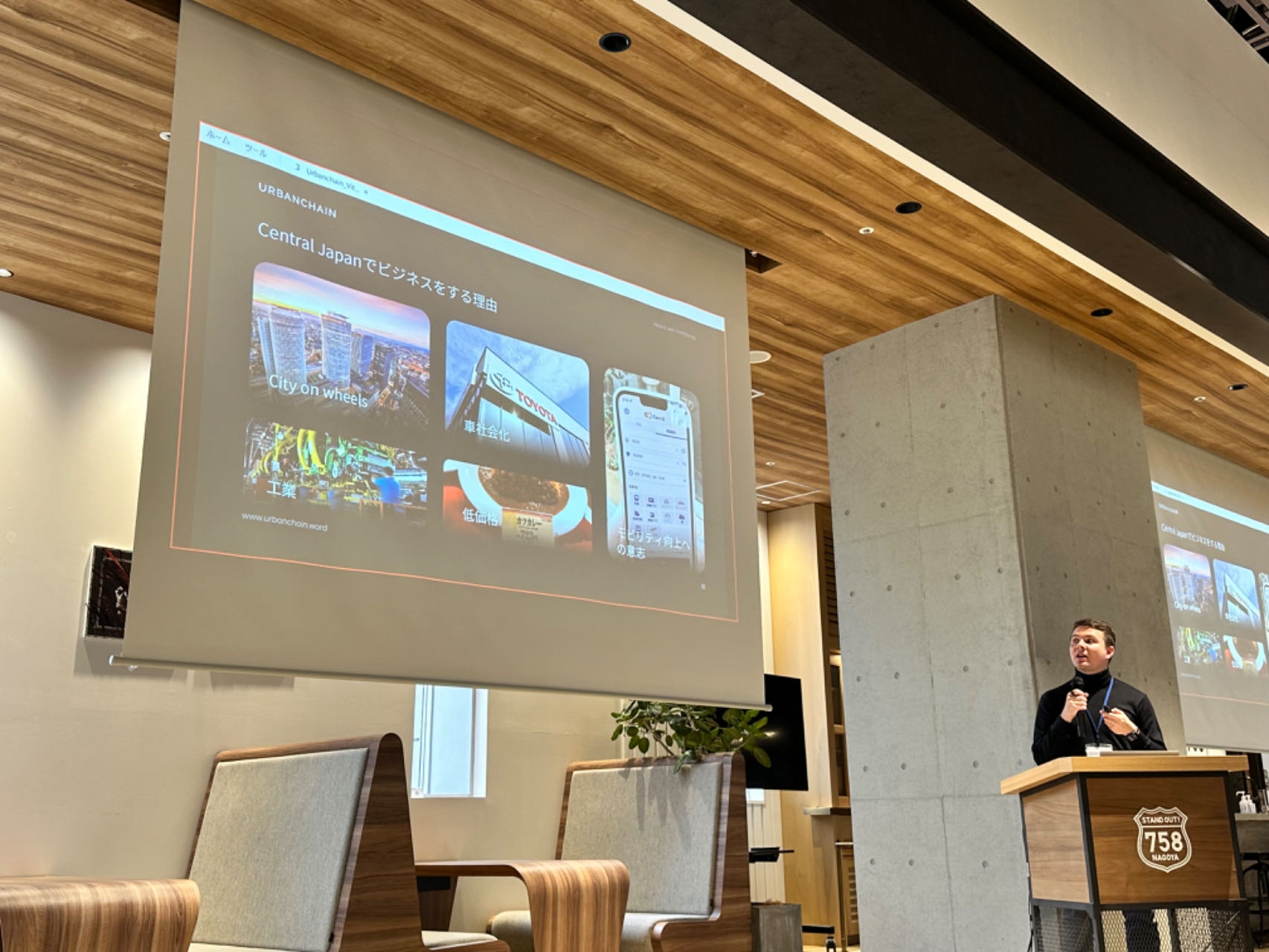Aichi Prefecture, where the automotive powerhouse Toyota is headquartered, is revving up for the future of mobility where air and ground travel are integrated. But what opportunities will this transition unlock for international startups?
Known for housing the headquarters of conglomerates such as Toyota, Denso, and Yamaha, the Aichi Prefecture, in tandem with the Nagoya and Hamamatsu regions (collectively known as Central Japan), is embarking on a mission. They are actively pushing for local and international startups to set up shop, grow, and contribute to an innovative ecosystem.
The Central Japan Startup Ecosystem Consortium was formed collaboratively by organizations including the Central Japan Economic Federation, Nagoya University, the Aichi Prefectural Government, the Nagoya City Government, and the Hamamatsu City Government. The goal of this consortium is to develop a best-in-class innovation ecosystem with a global reach.
With the Central Shinkansen Line set to open in 2027, which will connect Tokyo to Nagoya by shortening travel times between both cities down to 40 minutes, the region is anticipating the birth of a massive economic hub with a GDP equivalent to that of France. While innovative projects are already underway in sectors like healthcare and agriculture, the current spotlight is shining on new and emerging industries in the mobility sector.
On December 13, an event under the theme of “Diversifying the Value of Mobility: From Land to Sky” took place at Nagoya Innovator’s Garage. Both domestic and international startups driving innovative projects participated in this event.
One focal point of interest was the Aichi 2030 Declaration on Environmentally Sustainable Transport, which is a collaborative project between the government, major corporations, and startups aimed at integrating air and ground transportation. This project seeks to accelerate the commercialization of aerial mobility technologies such as drones and flying cars, bringing them to market and synergizing them with the operation of autonomous ground vehicles. Given the unprecedented nature of this challenge, Aichi and the city of Nagoya are actively engaging with the Japanese government to establish regulations while concurrently working with the private sector to facilitate progress of the project.
A series of new projects, stemming from proposals by Japanese startups to the government, is poised to commence. If accepted, these projects could significantly contribute to the business growth and branding of the startups. Shuichi Hirano, director general for Chubu and chief director of the Japan External Trade Organization (JETRO) in Nagoya, and Toshio Sumi, director of the innovation department at the Economic Affairs Bureau Startup Support Office of the Nagoya City Economic Affairs Bureau, emphasized the region’s commitment to involving overseas companies and foreign entrepreneurs in their initiatives.
To explore the appeal of Aichi and Central Japan, the challenges startups might face in these regions, and the resources they can leverage, 36Kr Japan interviewed representatives from three mobility companies currently involved in the local industry:
- Vitaly Pentegov is the group CEO of UrbanChain, an integrated smart parking management company from Hong Kong that has deployed its solutions in Nagoya, Japan. With the support from the Aichi Prefecture and JETRO, the company is presently piloting its solutions with Nagoya Railway.
- Toya Shunsuke is the CEO of Prodrone, a leading Japanese provider of industrial drone R&D and solutions. Specializing in both software and hardware development, the company is actively engaged in joint projects with the government and overseas startups.
- Souza Fabio is the CEO of Crystal, a company specializing in the development of in-vehicle systems for Japanese automakers and tier-one suppliers. This year, Crystal rolled out the electric scooter-sharing service “Su_i” with support from the Aichi Prefectural Government and Toyota Financial Services.
Attractive land prices and collaborative incumbents for startups
Mobile transportation is tied to hardware like cars and drones, among others. Hardware-centric companies typically require lots of space and talent in manufacturing. Compared to Tokyo and the Kansai region, Central Japan offers attractively priced land.
In addition, the Aichi Prefecture is home to major players like Denso, a global manufacturer of automotive components, making it a talent magnet. The region’s administrative agencies are also fully on board with recent mobility developments, offering policy and financial support for innovative experiments and pilot projects. For instance, several high-profile self-driving projects are unfolding in Central Japan’s cities, bolstering the digital savviness of the Japanese populace.
Moreover, Japan is gradually catching up with the latest technology developments in fields like digital transformation and artificial intelligence. With deep-pocketed Japanese giants eyeing overseas startups to blend their tech prowess with Japan’s manufacturing capabilities, startups can anticipate the opening of new growth avenues.
All hands on board
Souza told 36Kr Japan that he feels the warmth and seriousness of Central Japan’s government and startup support groups. The Aichi Prefectural Government, for instance, has offered significant support to Crystal, landing them collaborations with major Toyota-affiliated factories. The company’s latest product, “Su_i,” expanded its user base thanks to the Aichi government’s assistance.
A helping hand is extended not only by the local government but also by individuals from all walks of life. Prodrone’s Toya exemplifies this. Dubbed by peers as a charismatic individual, he turned his home into a small bar with a laid-back vibe, offering networking opportunities to the community. Toya’s initiative may seem minute but it has resulted in the sealing of collaborations.

In his conversation with 36Kr Japan, Toya quipped that, compared to the economic powerhouse that Tokyo is, Aichi represents the country’s “biggest village” with a stronger down-to-earth feel. “One of the charms of the Central region is that you can push projects forward through genuine exchanges between people. Everyone is usually willing to lend a hand,” said Toya.
For foreign entrepreneurs, building a network in Japan can, at times, prove to be a cumbersome process But the Central region is aiming to change the game by offering more support.
The Station Ai project by the Aichi Prefecture stands out as a key initiative aimed at supporting startups. It is targeting the creation of an international innovation center by blending domestic and international startup networks. Set to open in October 2024 in Showa, Nagoya, Station Ai is expected to attract foreign investors and major overseas companies. As a precursor to its opening, the Aichi Prefecture set up Pre-station Ai near Nagoya Station at WeWork Global Gate in 2020, offering services to startups and promoting open innovation cooperation with local bigwigs.

By tapping into initiatives like Station Ai and JETRO Aichi, UrbanChain managed to secure a proof of concept with Nagoya Railway, exploring the implementation of its solutions in multiple parking areas under Nagoya Railway’s supervision. According to Pentegov, finding the right business partner in Hong Kong wasn’t a walk in the park. But when the company decided to step into Japan, it received significant support and its business in the Japanese market went more smoothly than anticipated. Pentegov highlighted language barriers as a challenge, but with Station Ai offering support in this regard, UrbanChain managed to “sail through business negotiations.”

With Station Ai set to become fully operational in October next year, foreign investors and overseas companies are notably considering traveling inbound and making it their base. Aichi and the Central region are on the cusp of a major change, and companies with interest should keep a close eye on where this road leads.
